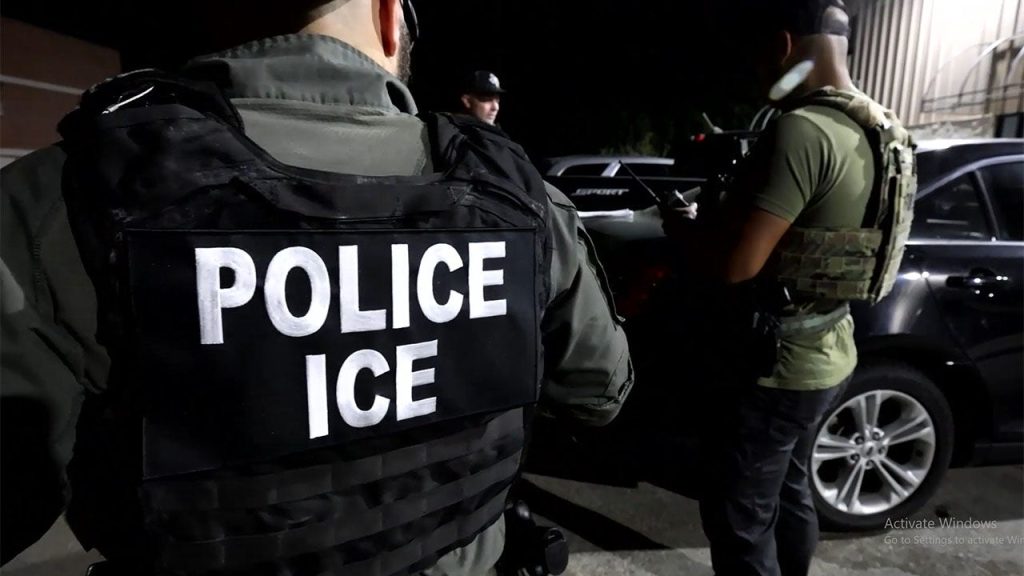The apprehension of Gora Tourie Fall, a Senegalese national wanted for murder in Brazil, by Immigration and Customs Enforcement (ICE) agents in Philadelphia has reignited concerns about border security and immigration enforcement under the Biden-Harris administration. Fall’s arrest follows a pattern of releases of individuals with criminal backgrounds or potential national security risks after they were apprehended at the US-Mexico border. This case underscores the ongoing debate about the balance between border security, due process, and humanitarian concerns in immigration policy. Fall’s initial apprehension and subsequent release in April 2021 at Eagle Pass, Texas, despite an outstanding warrant in Brazil, raises questions about the screening procedures and information sharing practices in place at the border.
The Fall case intersects with broader concerns about national security threats posed by individuals entering the United States illegally. A House report revealed that nearly 100 individuals listed on the terror watchlist have been released into the US during the Biden administration. This statistic, along with the report’s findings about the release of numerous “special interest aliens,” individuals from countries deemed national security risks, has fueled criticism of the administration’s border policies. Critics argue that these policies prioritize expeditious processing and release over thorough vetting and detention, potentially jeopardizing national security. The report further highlighted the vast number of “gotaways,” individuals who evaded apprehension by Border Patrol, further amplifying concerns about the porous nature of the border and the potential for undetected threats.
The House report’s findings paint a stark picture of the challenges facing border security agencies and the potential risks posed by insufficient screening of individuals entering the country illegally. The report details the nationalities of individuals encountered on the terror watchlist and the countries of origin of “special interest aliens,” highlighting the diversity of potential threats and the need for comprehensive vetting procedures. The report’s assertion that the Biden-Harris administration’s “open-borders agenda” exacerbates the national security risks has further polarized the debate about immigration policy. Proponents of stricter border controls argue that the administration’s policies prioritize the rights of migrants over national security, while advocates for more lenient policies argue that the vast majority of migrants pose no threat and that prioritizing security leads to inhumane treatment.
The controversy surrounding the release of individuals on the terror watchlist and the categorization of “special interest aliens” raise complex legal and ethical questions. While the government has a legitimate interest in protecting national security, concerns exist about the accuracy and fairness of watchlists and the potential for discriminatory profiling based on nationality. The balancing act between protecting national security and upholding due process rights remains a central tension in immigration policy. Furthermore, the sheer volume of migrants arriving at the border strains resources and complicates efforts to thoroughly vet each individual, creating a difficult challenge for border officials.
The Gora Tourie Fall case highlights the need for improved interagency communication and international collaboration to identify and apprehend individuals with criminal records or potential security risks. The fact that Fall was released despite an active warrant for murder in Brazil suggests deficiencies in information sharing between US authorities and their international counterparts. Strengthening international cooperation and streamlining information sharing processes are crucial steps to enhancing border security and preventing individuals with dangerous backgrounds from entering the country. This case also underscores the need for increased resources and personnel at the border to facilitate more thorough screening and vetting of individuals seeking entry into the United States.
In conclusion, the apprehension of Gora Tourie Fall serves as a stark reminder of the ongoing challenges in border security and immigration enforcement. The case has intensified the debate surrounding the Biden-Harris administration’s border policies and raised concerns about the potential for individuals with criminal backgrounds or national security risks to slip through the cracks. The need for improved screening procedures, enhanced interagency communication, and greater international collaboration is evident. Balancing the imperative to protect national security with the commitment to due process and humane treatment of migrants remains a complex and contentious issue that will continue to shape immigration policy debates in the years to come.

